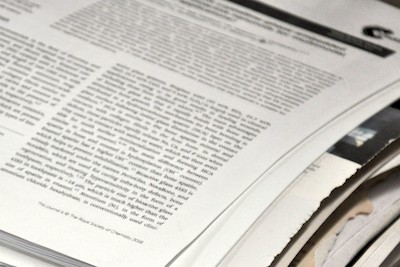Our new paper on bioactive glasses in collaboration with colleagues at University of Heidelberg published in Biomaterials Science
Our paper “Favorable angiogenic properties of the borosilicate bioactive glass 0106-B1 result in enhanced in vivo osteoid formation compared to 45S5 Bioglass” has been published in Biomaterials Science [1]. (Co-authors: F. Westhauser, B. Widholz, Q. Nawaz, S. Tsitlakidis, S. Hagmann, A. Moghaddam, A. R. Boccaccini). In this comprehensive experimental study, we compared the in vitro and in vivo performances of two bioactive glasses, namely Hench’s 45S5 bioactive glass and a novel Boron containing formulation (0106-B1) in terms of angiogenic properties and in vivo osteoid formation ability. Osteogenic differentiation, viability and proliferation of human mesenchymal stromal cells (MSCs) were assessed /in vitro/. Furthermore, MSC-seeded scaffolds were implanted subcutaneously in immunodeficient mice. An important finding was that the superior angiogenic properties of 0106-B1-BG resulted in improved osteogenic properties /in vivo/, concluding that this novel 0106-B1 formulation is a promising bioactive glass for further investigation for bone tissue engineering. The in vitro and in vivo studies were led by the team of Dr. Fabian Westhauser at University of Heidelberg.
[1] F. Westhauser, et al. Favorable angiogenic properties of the borosilicate bioactive glass 0106-B1 result in enhanced in vivo osteoid formation compared to 45S5 Bioglass, Biomater. Sci. (2019) in press.

